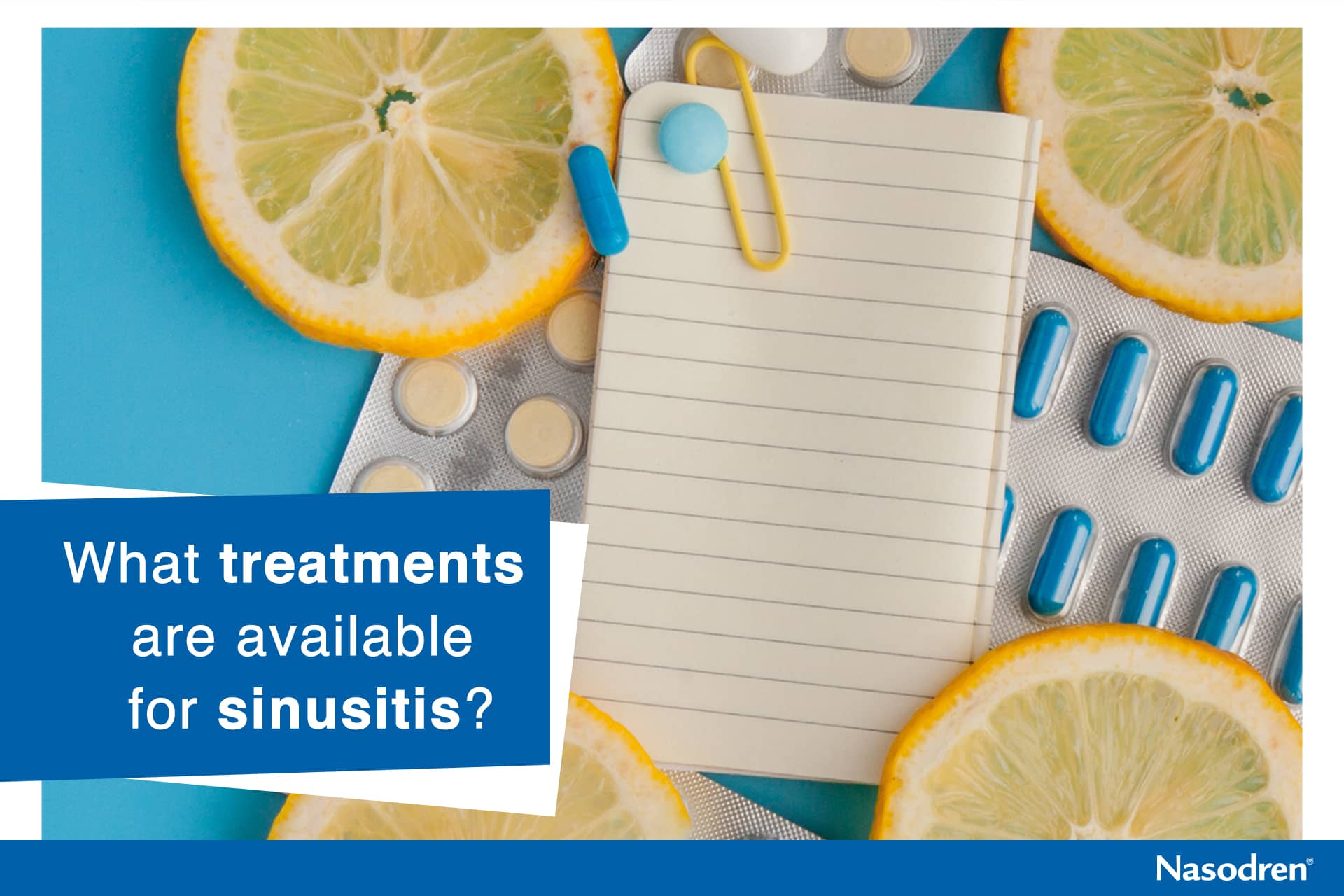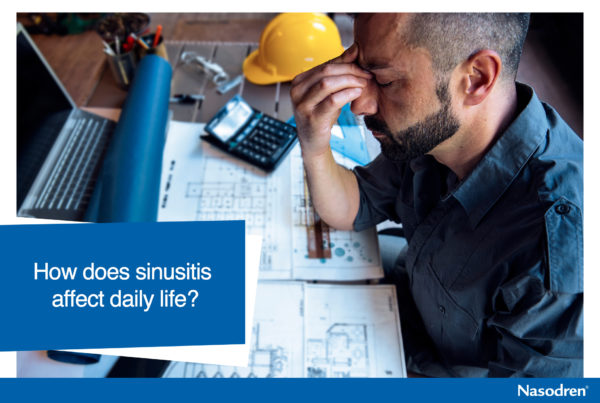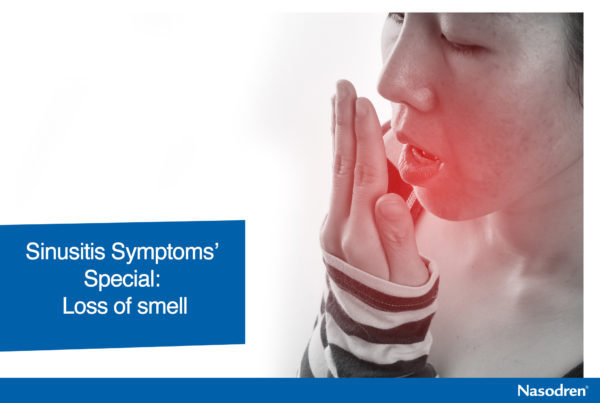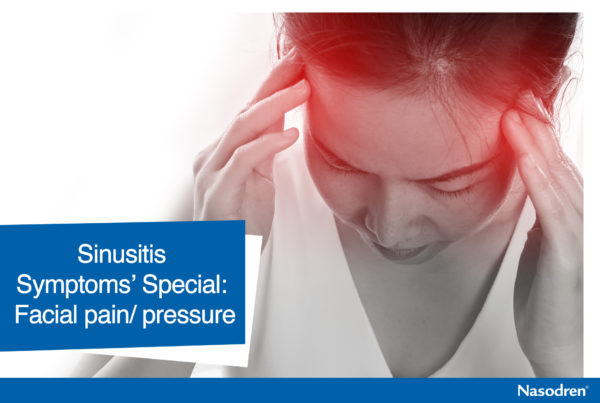Sinusitis is the inflammation of the lining of the sinuses.
The sinuses are 4 pairs of air-filled cavities that form part of the defence system of the upper airways.
To do their job, the sinus glands produce about a litre of mucus every day. Mucus traps particles, viruses, and bacteria in the inspired air to prevent them from reaching the lungs. Under normal conditions, mucus is swept away by microfilaments called cilia and exits the sinuses into the throat through narrow openings called ostia. The mucus reaches the stomach, where it is digested.
But what happens when there is sinusitis?
What happens is that the ostium practically close due to the inflammation, the cilia stop working properly and the mucus is trapped inside the sinuses causing the symptoms of this condition.
The main symptoms are nasal congestion, runny nose, facial pain or pressure, and impairment or loss of smell.
Although these are not serious symptoms, they are very discomforting and significantly affect the quality of life of sufferers.
Typically, people with chronic sinusitis take an average of 3 products and/or medicines in combination but with poor results.
What are the most commonly prescribed treatments for sinusitis?
1.- Antibiotics.
Many doctors, including ENT specialists, prescribe courses of antibiotics of varying lengths, although in reality, only between 0.5 and 2% of sinusitis cases have a bacterial infection. In fact, there are no conclusive clinical studies that demonstrate the need for antibiotics for the treatment of sinusitis.
2.- Corticosteroids.
Another widely used medications are nasal corticosteroids. These products are very effective in two situations:
- – When there is underlying allergic rhinitis that favours the exacerbation of sinusitis
- – When nasal polyps are present. Polyps are abnormal but benign growths of tissue that, when large, can obstruct the ostium and prevent drainage of mucus. Nasal corticosteroid sprays reduce the size of polyps and in some cases can alleviate the symptoms
3.- Nasal decongestants.
Since one of the most frequent symptoms is nasal obstruction, one of the most commonly used products are nasal decongestants, widely advertised on TV.
These preparations are rapid but short-acting, leading to much more frequent use than recommended, resulting in a rebound effect, tolerance, and dependence. The abuse of decongestants causes a disease called Rhinitis Medicamentosa that accounts for about 15% of visits to a specialist and whose main symptom is, paradoxically, nasal obstruction.
4.- Saline or seawater.
These preparations produce a decongestant effect on the nasal mucosa because they remove the water from inside the cells through an osmotic effect. Daily use is recommended to keep the nasal mucosa moist, especially when living in areas with a dry climate.
5.- Mucolytics.
Although widely used, there is no conclusive data from clinical trials showing that they actually reduce the viscosity of mucus and should therefore be recommended.
6.- Analgesics.
When pain is severe, painkillers such as ibuprofen, paracetamol, or even stronger ones provide relief, at least temporarily, but do not treat the cause of the symptoms.
Clinic tested natural treatment: Nasodren
In addition to these, there are many other treatments that are scientific to a greater or lesser extent, or based directly on ancestral traditions with null or unsatisfactory results.
Previously it has been commented that the symptoms are due to the accumulation of mucus in the nasal sinuses and none of the products or medications mentioned above produce this effect.
Nasodren is a 100% natural nasal spray as it contains only cyclamen extract, with no preservatives or excipients.
With its unique mechanism of action, Nasodren has a dual effect. On the one hand, it reduces the inflammation of the nasal mucosa due to an osmotic effect similar to that of seawater. On the other, and more importantly, it opens the ostium of all the sinuses and restores the movement of the cilia so that the retained mucus is drained, thus relieving the symptoms.
Nasodren is not absorbed so it has no side effects and does not produce a rebound effect, tolerance, or dependence.
The efficacy and safety of Nasodren have been demonstrated in 30 clinical trials whose results have been published in the most prestigious medical journals such as Rhinology of the European Rhinologic Societies and The Laryngoscope of the North American ENT Society.
Nasodren is 100% natural, with no rebound efect
Effectively reduces nasal congestion
Buy now HERE









